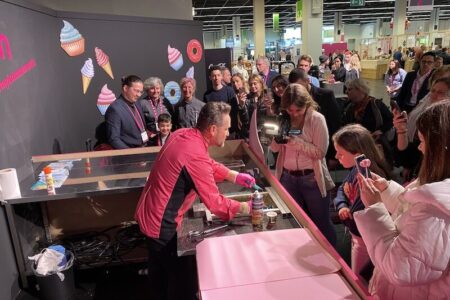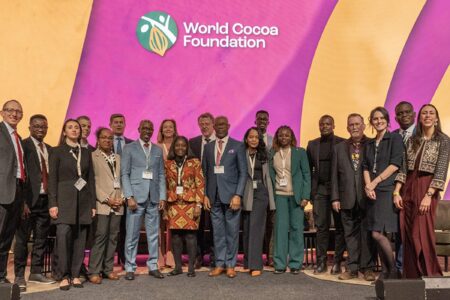Sustainable wheat scheme from Mondelēz targets 100% of its EU biscuit production

A major initiative from Mondelēz International has been confirmed with an expansion of its sustainable wheat sourcing to cover 100% of its biscuit brands in the EU by 2022.
The company’s Harmony programme aims to considerably increase its present figure of 60% over the next four years in response to consumer demand.
According to the company, its scheme involves 1,700 farmers, 13 millers and 21 cooperatives across six markets including Belgium, the Czech Republic, France, Italy, Poland and Spain.
Together, they produced a combined total of 177,000 tonnes of wheat for the company’s biscuit brands last year. These include labels such as LU, Oro, LiGA and Fontaneda.
“European consumers increasingly equate high-quality products with sustainable production. They’re aware of the impact of their food choices on the environment and have high expectations of manufacturers to take their share of responsibility,” said Hubert Weber, executive vice president and president Europe.
He added: “As Europe’s largest biscuit baker, we can play a role in tackling challenges like climate change and resource shortages by promoting sustainable farming practices and improving biodiversity in our supply chain.
“In doing so, we contribute to creating a fairer, more transparent and integrated supply chain, in which good quality for consumers means a good impact on farmers and society.”
As the company revealed, annual production of wheat under the sustainable conditions set out by the Harmony charter would increase to over 280,000 tons by 2022.
This would cover the volume of wheat needed to produce the company’s entire European biscuit portfolio, adding brands such as belVita, Milka Biscuits and Barni.
A Decade of Sustainable Partnership
First launched 10 years ago in France, Harmony champions biodiversity and good environmental practices in wheat production in Europe. Co-created along the wheat supply chain with farmers, cooperatives and millers, the program seeks the commitment of partner farmers to follow sustainable practices in the cultivation and processing of wheat in return for a premium on their crop.
Under the scheme, farmers choose to conserve water, care for the soil, protect biodiversity and reduce carbon emissions, and stand to increase income by doing so.
Harmony was developed with the help of NGOs, agronomists, environmental specialists and research organizations. Its practices are are audited every year to ensure they are respected.
Significantly, it is underpinned by a charter of sustainable practices= that seeks to minimise the usage of pesticides and fertilisers by encouraging the selection of resilient wheat varieties and through crop rotation and care for soil avoid unnecessary treatments
reduce carbon emissions. This is achieved especially through the reduction of fertiliser use.
Its operations also seek to preserve the quality of water and local biodiversity, and according to its figures the scheme has let to a 20%
reduction in pesticide use in fields, between 2009 and 2016.
In addition, the project has sown 1,026 hectares of flowers around the Harmony fields and close to 17 million bees and over 30 species of butterflies have been observed in Harmony fields.
“Harmony is much more than an agreed set of sustainable wheat farming practices,” said Romeo Lacerda, president biscuits, Mondelēz Europe.
“It’s a movement that connects everyone involved in our supply chain with others seeking to increase the positive impact we can make on our environment and biodiversity. By bringing NGOs and farmers to work together, we can implement farming practices that are both effective and pragmatic. In doing so, we can act as a catalyst for positive change.



